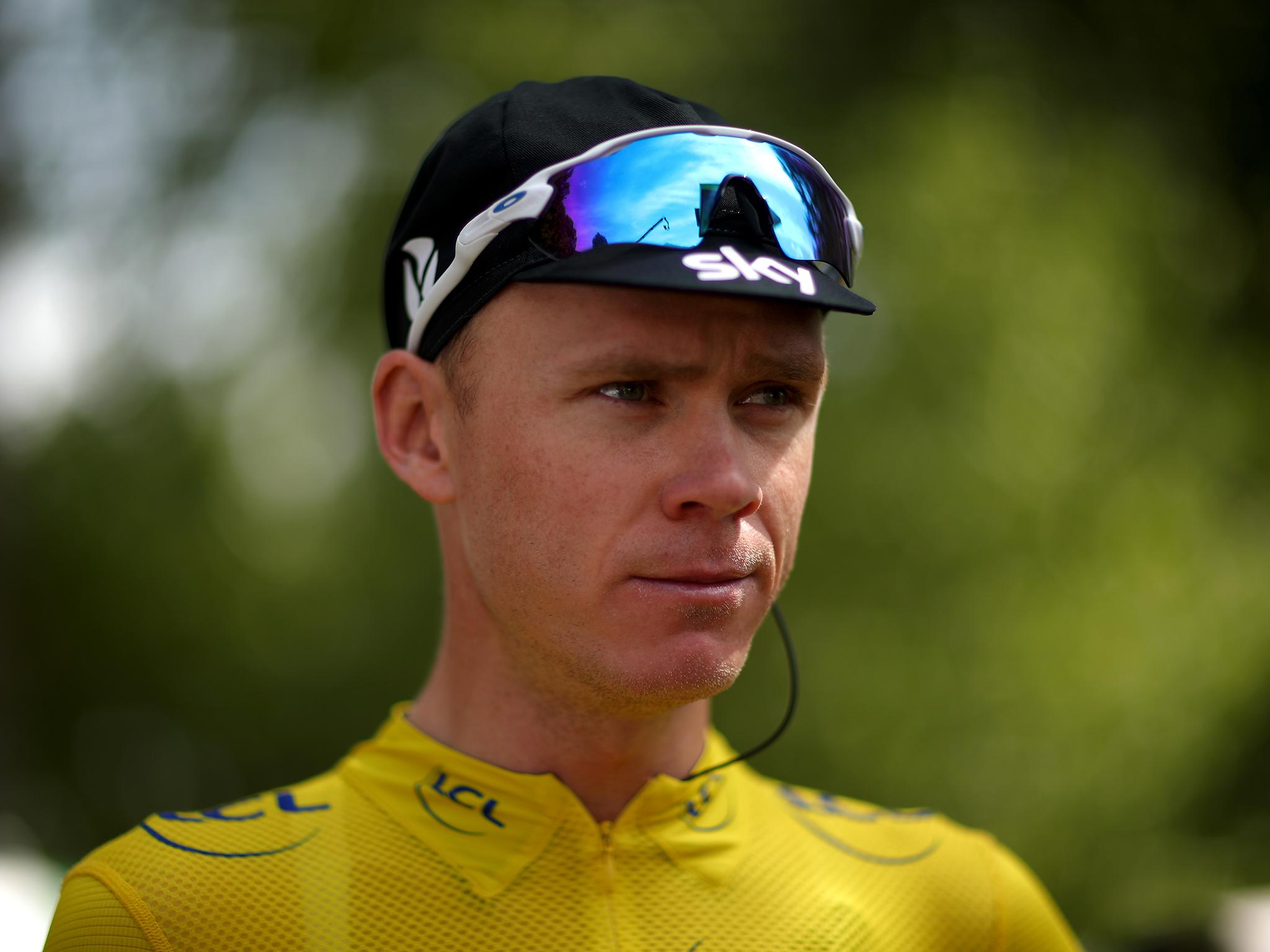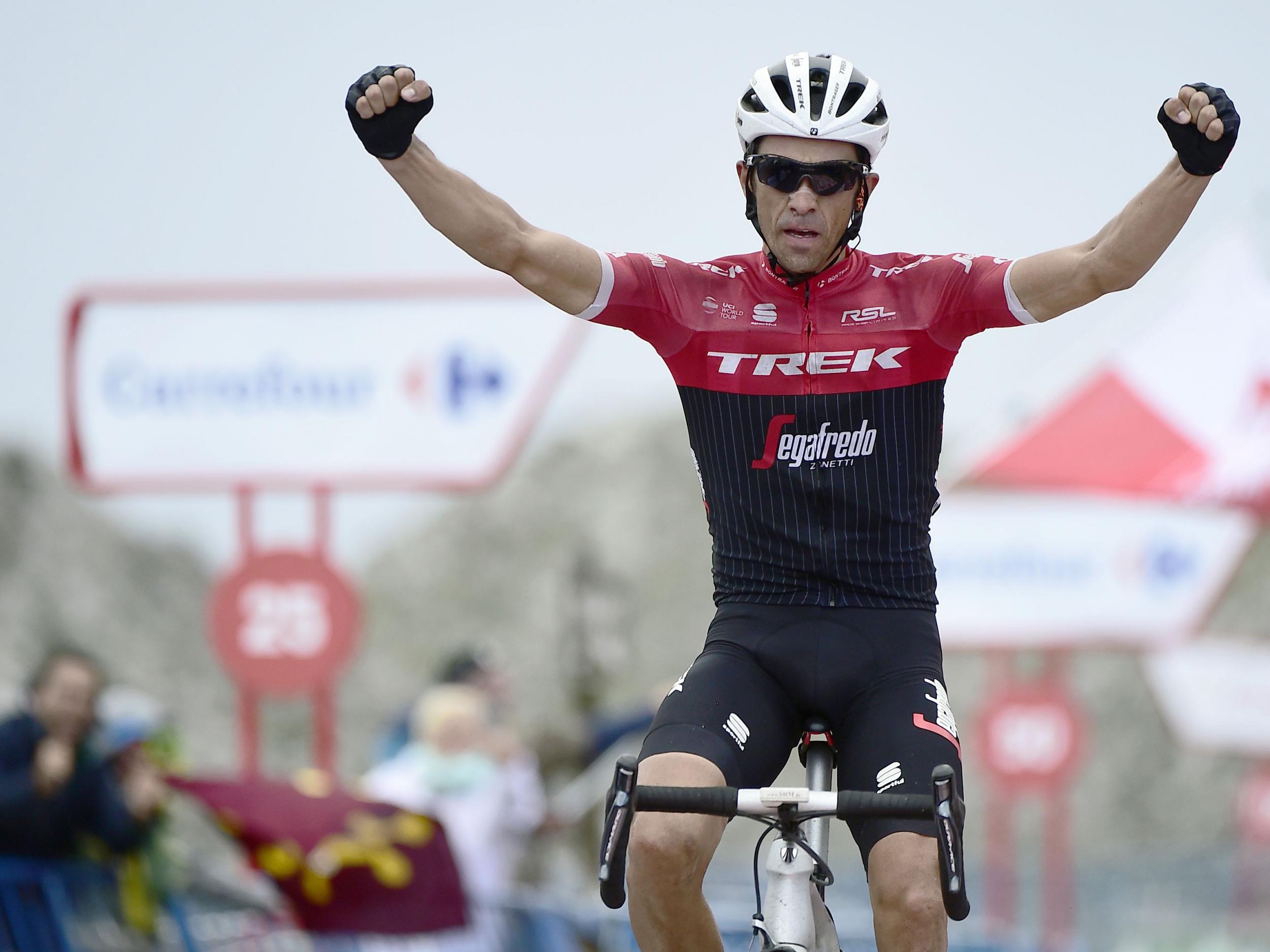The Chris Froome drugs test saga has the Giro d'Italia in its sights in what could be a repeat of one of cycling's darkest tales
The 2011 Giro saw Alberto Contador compete despite the looming threat of being banned, stripped of his title and robbing the late Michele Scarponi of his rightful crown

In the eye of the storm around Chris Froome last week was one solitary test result, one spike above the threshold for an asthma drug widely thought to have no performance enhancing qualities. Yet what is increasingly clear about that single adverse analytical finding is that the potential ramifications will grow with each passing week and month that a clear verdict is not found.
Amid the debate simmering among cyclists, scientists, journalists, lawyers and general controversy enthusiasts, the most pertinent problem for Froome is the sheer size of that spike. At 2000 ng/ml he was double the permitted limit – hard to explain amid 20 other tests from the same race which all fell below 1000 ng/ml.
In such cases the burden of proof is on the cyclist, and Team Sky have hired the most prominent lawyer in his field, Mike Morgan, to present their explanation to the UCI’s legal anti-doping service.

Morgan, who won 2017 sports lawyer of year, successfully represented Lizzie Deignan in her case over missing three drugs tests, showing that one was the mistake of the testing authorities. It will be Morgan's job to convince a tribunal that Froome took the correct dosage, probably explaining that a complex physiological quirk caused the anomalous result.
Froome’s Vuelta a Espana title depends on the outcome but as time passes, so will so much more.
May’s Giro d’Italia is the prime candidate to be overshadowed by the furore. Froome announced his participation in the Italian Grand Tour to great fanfare at a ceremony in Milan last month, his round head stretched across a giant screen in the auditorium like an extra-terrestrial celebrity. In retrospect it is an awkward scene, knowing as we do that Froome was well aware of his compromised situation. There are strong rumours of a €2m payment from the Giro's organisers to secure his participation – something race director Mauro Vegni denies. That investment, if true, does not look particularly shrewd.
The race had already found political controversy after announcing that the opening stage would begin in west Jerusalem, a clumsy choice of wording which angered the Israeli government and forced organisers to rename the start simply Jerusalem. The choice of Israel as the place to start the Giro was already a disputed one; Vegni said it will be a “unique opportunity” to showcase the sport outside Europe but the Boycott, Divestment and Sanctions movement led accusations of a “sports-washing of Israel's occupation and apartheid”. The race was hardly likely to pass without controversy – but there is now the possibility of Froome lining up on the startline, and even winning the race, with the case hanging over him.
That is for two reasons: firstly, there is no fixed timescale in place for his hearing, which could feasibly drag on into spring of 2018 without a clear resolution, and even further should it escalate to the Court of Arbitration for Sport as with several similar cases in the past; and secondly because Team Sky have not suspended their rider.
A team-imposed suspension would mean that if Froome receives a six-month ban, for example, it could be backdated to the start of his inactivity, as with the similar case of Italian rider Diego Ulissi in 2014. On Monday the MPCC, a voluntary group promoting cycling ethics, called for Sky to suspend Froome “on a voluntary basis” until his case is over. It is something Team Sky could have done from the outset but that would have involved going public rather than keeping the situation under wraps as they managed to do until last week. Instead of suspending him, they have sent Froome to race on various jaunts around the world and evidently they intend for him to ride the Giro d’Italia.

Cycling only has to look back to the 2011 Giro to see how badly that would turn out. The history books say Michele Scarponi won the race, but he didn't get the opportunity to enjoy it at the time because he finished a full six minutes behind Alberto Contador, who had raced with a potential ban hanging over him and was later stripped of his title.
It was a brutal race marred by the death of Wouter Weylandt and tainted by the Contador saga. Scarponi tragically died earlier this year when has was hit by a van while cycling near his home in Italy, and the 2011 Giro d’Italia was, on paper, a career highlight. But on being awarded the title almost a year after finishing second, he said: “You celebrate wins on the road, with the flowers, the podium girls and the people. On that day at the Duomo in Milan, with the national anthem and a blue sky. Being awarded first place afterwards doesn’t bring emotions. It’s a statistic.” It is the type of statistic the sport does not want to repeat.
Join our commenting forum
Join thought-provoking conversations, follow other Independent readers and see their replies
Comments